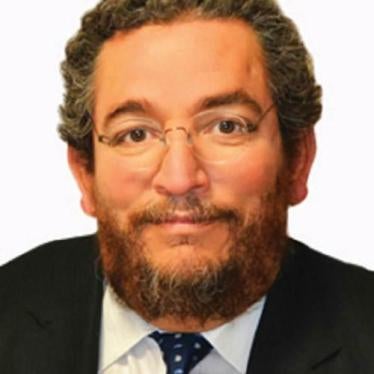“Who is with you?” is a question that people with various types of disabilities regularly need to answer when interacting with others in the public sphere, requesting services, negotiating, and, in general, making decisions about their own lives. It’s a question that highlights attitudinal barriers and entrenched prejudices that are reinforced by legal and policy frameworks that disenfranchise people with disabilities.
The concept of legal guardianship—putting someone else in charge of making decisions for another person -- is one of those frameworks. In the past, many societies have denied legal capacity to some groups. Today, some countries still limit the legal capacity of women, and most restrict the legal capacity of people with certain types of disabilities and of some older persons. This violates international human rights law, which requires countries to treat everyone equally before the law, including older people and those with disabilities.
That shift is happening in Mexico City. Congresswoman Marcela Zuñiga has introduced a bill in Mexico City’s Congress to reform the city’s Civil Code and Notary Public Law. The bill responds to several Supreme Court rulings that guardianship and restrictions on legal capacity are unconstitutional and that there should be a system enabling everyone to have legal standing on an equal basis. Organizations of people with disabilities were among the civil society experts on legal capacity who drafted the bill. These organizations formed the Deciding Is My Right coalition, which has made public presentations about the bill.
The bill builds on good practices and reforms already being carried out in the Americas, specifically in Colombia, Costa Rica, and Peru, and also contains innovations like establishing that legal capacity and supported decision-making should be accessible to all adults. It also recognizes the different ways that people can express their will and preferences when signing contracts and establishes specific mechanisms for them to appoint someone to help them make decisions, understand legal documents, and communicate their wishes and preferences. This means that people with disabilities will now be able to, for example, rent an apartment, marry, or write a will in their own name or with the help of a supporter. Traditionally, people with disabilities have been under guardianship and denied these rights. The new legal framework would benefit anyone who desires to make decisions with support, regardless of their disability.
Most people can express their own will and preferences, though, and some do with accommodations. The bill just presented offers means to recognize other forms of expression, including the appointment of a support person who can facilitate communication. All 32 states in Mexico need to modify their civil legislation to grant full legal capacity to people with disabilities, and they now have a model to follow with Mexico City’s bill.
In everyday social interactions people don’t go to judges or notaries to rent a car, sign an apartment lease, or agree to a health treatment’ but they might request support to take those decisions or to communicate them. This can be done, according to the proposal, through private contracts or designating support persons for certain transactions.
Full legal capacity will enable everyone, including people with disabilities and older people to decide whether they want to be supported by someone in their decision-making process. And it is the first step toward ending the infantilizing question, “Who is with you?”








